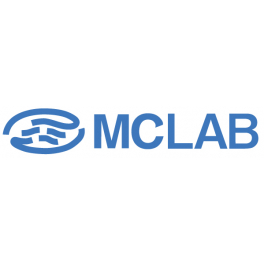 View full size
View full size
- Analiza kwasów nukleinowych
- Analiza białek
- Odczynniki biochemiczne
- Enzymy
- Edytowanie genów
- Klonowanie
- Diagnostyka kliniczna
- Human Identification STR kits
- Sprzęt laboratoryjny
- Oprogramowanie
- A&A Biotechnology
- AdvancedSeq
- BioDynami
- Plant Cell Technology
Aktualności
-
RANK 2026
Zapraszamy do odwiedzenia nas podczas jubileuszowej 20. edycji konferencji naukowej RANK 2026, która odbędzie się w dniach 18–19 marca w Pardubicach, w klubie ABC. Konferencja jest organizowana przez ...
Czytaj więcej -
XXXV. Izakovičov memoriál 2025
We are pleased to announce our participation in the prestigious XXXV. Izakovič Memorial 2025, which will take place on October 8–10, 2025 at the Grandhotel Praha, Tatranská Lomnica. The Izakovič Memo...
Czytaj więcej -
1st Czechoslovak Congress of Medical Genetics 2025
In the spring, we will participate in the 1st Czechoslovak Congress of Medical Genetics, which will take place from April 2–4, 2025, at the Cultural and Congress Center Elektra in the spa town of Luha...
Czytaj więcej
 View full size
View full size
Description
Neurotrophins are growth factors that modulate growth, differentiation, and survival of neurons. Structure related proteins include neuron growth factor (NGF), brain derived neurogenic factor (BDNF), neurotrophin-3 (NT-3), and neurotrophin-4/5. They are highly homologous and share a similar structure of a tertiary folded, cysteine rich "knot". Neurotrophins are critical to the development of the central and peripheral nervous system and they play important roles in injury induced neuron regeneration.
NT-3 is encoded by the NTF3 gene, and is the only neurotrophin that affects the development of the enteric nervous system. NT-3 primarily activates the TrkC tyrosine kinase receptor. In addition, NT-3 can activate Trk and TrkB kinase receptors in certain cell systems. NT-3 can also bind with low affinity to the low affinity NGF receptor. Dysregulation of NT-3 is known to be related with neuroblastoma, Alzhiemer's, Huntington's, and Parkinson's Disease. Due to the broad cell poplulations affected by NT-3, the control of NT-3-TrkC pathway has become a target for therapeutical approach for neurogenic diseases.
Full Name
Human Neurotrophins-3
Source
E. coli
Species
Human
Accession #
NM_002527.4
Molecule Weight
NT-3 recombinant protein is a noncovalent linked homodimer. The 120 amino acid recombinant protein has a predicted molecular mass of approximately 13.6 kD as monomer, 26.5 kD as dimer
Purity
> 95 % as determined by SDS-PAGE
Endotoxin
< 1.0 EU per μg of the protein as determined by the LAL method
Activity
The ED50 as determined by the dose-dependent induction of choline acetyl transferase activity in rat basal forebrain primary septal cell cultures was found in the range of 20-50 ng/ml, corresponding to a specific activity of 2-5 x 104 units/mg.
Storage
-80 °C, avoid repeated freeze-thaw cycles.
Storage Buffer
PBS


